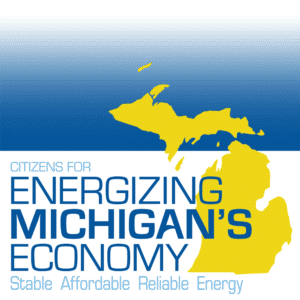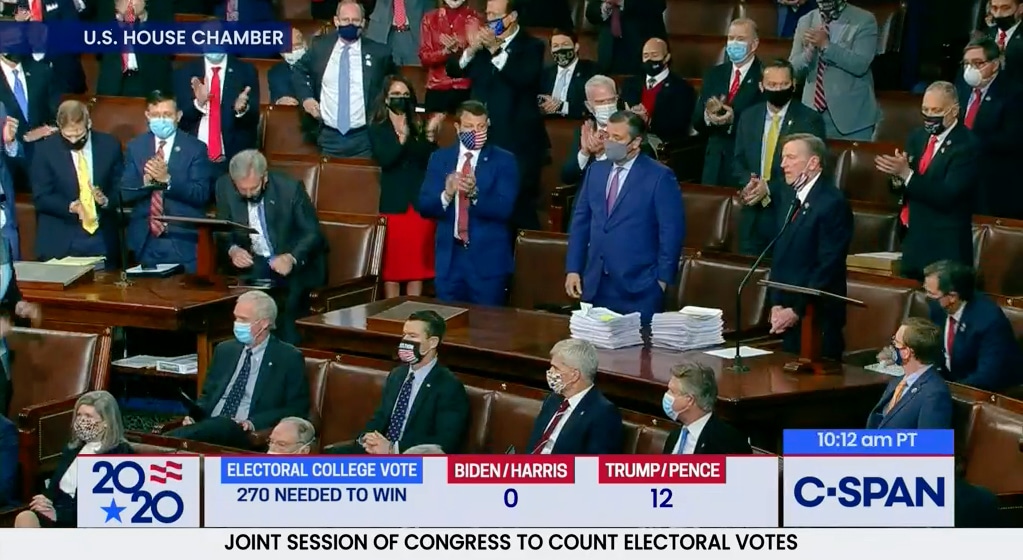Citizens for Energizing Michigan’s Economy

Citizens for Energizing Michigan’s Economy (CEME) is a 501(c)(4) dark money group funded by Consumers Energy and overseen by utility lobbyists. CEME has funneled millions of dollars to other nonprofits tied to Michigan elected officials and into advertisements designed to sway public opinion ahead of primary and general elections.
Consumers Energy is an investor-owned monopoly utility company that provides electricity and natural gas to 3.7 million customers in Michigan. It is among the state’s most influential corporations. Using 501(c)(4) dark money groups like CEME enables donors to skirt around state-mandated campaign contribution limits and distribute large amounts of money with minimal scrutiny. The disclosure requirements for 501(c)(4)s are less stringent than the State of Michigan requires for standard campaign contributions and lobbying expenses.
In 2022, CEME made six-figure donations to accounts linked to key Democratic elected officials – the same year Democrats secured control of both the legislature and governor’s office and teed up an overhaul of energy laws. Lawmakers ultimately passed a suite of energy bills, but not without criticism that they were too deferential to utilities and loosened bill language to appease utility interests.
As reported by the Detroit News, CEME’s 2022 disbursements went to Governor Gretchen Whitmer and lawmakers in leadership positions who control the state’s legislative agenda. A contribution of $200,000 went to a fund affiliated with Whitmer, who also appoints Michigan’s utility regulators. CEME doled out $200,000 to a fund linked to Democratic House Speaker Joe Tate, and $220,000 to a fund tied to Jim Ananich, who was then the top Democrat in the Senate.
Republican interests also received sizable donations from CEME in 2022, including $200,000 to the Republican-affiliated State Government Leadership Foundation. Funds that the Detroit News linked to House Minority Leader Matt Hall and Republican political consultant Jamie Roe each received $50,000 from CEME in 2022.
CEME reported spending $4,432,178 in total “program service expenses” for 2022, an election year – 16 times the $262,566 in expenses reported for 2021, which was not a state election year. The 2022 spending total includes $1,335,000 to other organizations, including the 501(c)(4) funds affiliated with lawmakers, plus $1,398,881 spent on lobbying, and $1,375,214 for advertising and promotion. CEME spending slowed in 2023, according to its latest available tax filing.
CEME 990s: 2023, 2022, 2021, 2020, 2019, 2018, 2017, 2016, 2015, 2014.
As a 501(c)(4), CEME is not required to provide a detailed breakdown of those expenses. Michigan Attorney General Dana Nessel has called for greater transparency into utilities’ political spending generally, including activities related to 501(c)(4)s.
Consumers Energy lobbyists at the helm
CEME’s board of directors includes Brandon Hofmeister, Consumers Energy’s senior vice president of governmental, regulatory and public affairs, according to its 2023 annual report filed with Michigan Department of Licensing and Regulatory Affairs.

The CEME board also includes Ronn Rasmussen, Consumers Energy’s former vice president of strategy and research, and Howard Edelson, president of the lobbying firm Edelson Group. In 2012, Edelson managed a utility-funded campaign that defeated a ballot initiative that would have increased Michigan’s renewable energy standard to 25% by 2025. Consumers Energy contributed over $12 million to the campaign that year.
Edelson has collected a $144,000 retainer fee from CEME over several years, according to CEME’s tax filings.
The board has also counted Eric Doster as a member. Doster is an attorney who has listed affiliations with dozens of political and 501(c)(4) groups in Michigan, according to state records.
CEME money flows despite IRS complaint, regulatory scrutiny
CEME’s election year spending in 2022 continued a long tradition of political influence peddling by Consumers Energy – one that is not without controversy. In 2018, Patrick Anderson of Anderson Economic Group, filed a complaint with the IRS over CEME’s tax status.
Anderson wrote that CEME is “operating in direct violation of its claimed purpose to ‘receive and administer funds for social welfare purposes’ … The primary purpose of CEME, as evidenced by its activities and expenditures, is to conduct political campaigns that support or oppose specific candidates for state offices in the State of Michigan.”
Following the complaint, which alleged that CEME’s ad spending in the 2018 primary election violated federal tax and campaign finance laws, Michigan utility regulators took the unprecedented step of temporarily banning Consumers Energy from being able to contribute money to nonprofit political advocacy groups from the regulated utility. Later, Hofmeister – the Consumers Energy lobbyist who also sits on CEME’s board – suggested to state lawmakers that the prohibition could have limited impact because it did not apply to CMS Energy, the utility’s parent company, which could continue to contribute to dark money groups under the deal. Regardless, in the years before the complaint and temporary ban, Consumers Energy had already filled CEME’s coffers with enough to cover virtually all of CEME’s spending through 2022, the most recent year for which data is available.
Between 2014 and 2017, Consumers Energy dispensed $43.5 million into CEME – far more than the utility reported in other political spending during that time. The figure is over 40 times greater than the total amount of money the utility’s PAC made in standard campaign contributions to Michigan candidates during that span. It is greater than the utility’s direct state lobbying expenditures, and nearly 10 times larger than its reported federal government lobbying over the same four-year period.
Despite the temporary pause on Consumers Energy’s contributions to CEME, the 501(c)(4) itself disbursed more than $10 million to various politically connected organizations between 2018 and 2022, the Detroit News reported.
CEME money looms large over elections
As of the end of 2023, CEME had $12,739,955 in assets, according to its tax filing. Because of delays built into the 501(c)(4) disclosure schedule, the public will not be able to see funds raised or spent by CEME in 2024 – the most recent election year – until late 2025.
In past years, CEME has produced online and print advertisements that promote candidates using a variety of messages. For example, CEME mailers distributed in 2020 noted one candidate’s “good Christian values” and a COVID-19 response that “protects life and liberty” and, in another case, a candidate’s past work for the Obama administration. The group’s ads encourage Michigan voters to “call your legislator” and express support for their platform.
The IRS classifies 501(c)(4) groups as “social welfare” groups. They are allowed to engage in some political activities, but not as their “primary activity,” and are prohibited from campaigning “on behalf of or in opposition to any candidate for public office.” This explains why CEME ads avoid directly telling Michiganders to vote for a candidate. This is the loophole that led Anderson, the tax policy expert in Michigan, to file his IRS complaint against CEME in 2018.
One former state senator, Republican Gary Glenn, lost his election after CEME spent big on ads criticizing him. Glenn had been supportive of policies that would invite more competition for Michigan utilities – a stance at odds with the monopoly power enjoyed and protected by Consumers Energy. After losing his primary, Glenn publicly pinned blame on utility money and warned his loss would spook other elected officials.“By hanging my hide on the wall, utilities will intimidate even more legislators. Many legislators walk around scared of their own shadow when it comes to utility lobbyists. I am more disappointed in that than I have been about having lost the race — the fact that they’ll be able to intimidate other lawmakers by pointing to what they did in my race,” he told Midwest Energy News.
Citizens for Energizing Michigan's Economy's Ad Spending
Utilities continue to stall and limit climate action by funding front groups to spread climate misinformation and false solutions to solve the crisis through advertising on social media networks.
Using data from the Meta Ad Library API and existing code from Brown University, EPI created a tool to expose the amount Citizens for Energizing Michigan's Economy is spending on advertisements about social issues, elections, or politics across Meta technologies, along with the specific regions the advertisements target.







